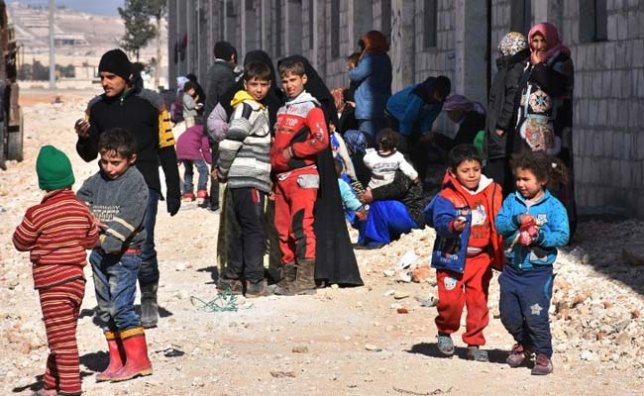The Syrian wars are one set of issues the other is the so-called peace to come, an added bonus here. Whether UN agencies, donors, mafia, proxy rebels, human rights NGO, women’s rights international NGO, nobody is giving a dam about how peace processes and humanitarian aid prolong a war economy that benefits the 1% and their technocrats. It does nothing for people on the ground. The short opportunity where a local civil society can and should coalesce to discuss how to organize in time of war, when, as in the case of the ME regional civil society meetings should have been encouraged to build solidarity and safe houses donors were too busy to either push their own petty foreign policy agenda without understanding a thing about the particular context, the historical baggage, the ramifications. Some were already on their way to create an ex-pat economy while their colonials ways were encouraging them to take over local structures or worst, introducing administrative entrapment such as Logical framework analysis diverting the energy and time of those Syrian activists having local knowledge and contacts to create parallel thinking and where acting underground would challenge the status quo aiming for social transformational relations.
Peace has become another word for the fabrication of fragile states where proxy wars can be pursued and where the international bureaucrats clamp down on a civil society organic way to structure itself. Peace is the new word for the normalization of war. Twenty-five years of work got me to only trust the grassroots activists and ensure some of them are not "jet-set ized". I think of the small Syrian organizations of youth I met in 2013 in Beirut who were still able to go back and forth to their respective hometown in Syria bringing food, blankets, women hygiene kits, paper, pencils, school books. Young ones, women and men showing me the bullet of a sniper that had ended in an upper thigh. How they love meeting each other to discuss who they could trust in which village, who would swing allegiance depending on the factions that was moving in their area. The fantastic knowledge they had of who was whom, who to trust, how to organize underground schools, clinics, food distribution, talks of surviving the divisive climate Assad was distilling with his street gangs, opening his prisons to let the Islamists spread their hatred, etc.
I remember telling these young people not to trust the ngoification of their civil society as it wouldn’t be for their benefits or that of the people of their hometowns. And for the western NGOs that were spreading about in Beirut in those days they barely knew what there were doing there but some young Syrian worked in those trying to stick around and do what they could as the idea of total exile was unbearable.
I remember a small group of four brilliant young Syrian women doing research on the role of women during the revolution. They also were working on the perception of sexuality among the youth. They were supported by the Danes and didn’t trust the West. They just wanted to bring women’s historical role to the revolution. I met poets working to bring education to the children so afraid they were that a whole generation of kids would be lost.
Then I realized that this war wasn’t the war where middle class Western project managers in NGOs could actually make a living with and get home with achievements ensuring a new year of funding for their small lot. In 2013 Syrian would see for themselves how the international community had nothing to contribute for the survival of their revolution.
The Syrian wars would crush a population in a devastating way and the rebuilding of a civilian life is at the core of what happen there and how much this war will have an impact on civil populations in the 21st century. But who speaks of that..? A civil society is barely surviving in Syria, that of Aleppo has nearly vanished under the rubbles but those of us still involved in solidarity work have to encourage its resurgence, its ability to regroup, coalesce, meet wherever it has now taken refuge.
I haven’t worked on this issue in an official capacity now since 2014. But I keep watch and I’m staying close to some of those young Syrians I have befriended most of them in exile but some still living dangerously at the borders of Syria and Turkey, or Syria and Lebanon. It’s time for these young ones to be heard in an environment that’s theirs not the donors or the international NGOS turf.
Time to listen and facilitate their own conversation among themselves within the region. A region that Assad, Putin, Khamenei, Erdogan, the House of the Saudis, the Qataris, Iraq, Israel, the Hezbollah,The French, the U.K., the US are yet again trying to redefine.
So feminists, human rights activists, peace activists, artists, shopkeepers, doctors, nurses, architects, academics, environmentalists of the region need for us to come clean and insist within our respective countries to demand that they be heard and that they can have the opportunity to reach out to each other to organize.
What will happen next for civil society in the region will have consequences for our owns.
December 18, 2016
 Log in
Log in









